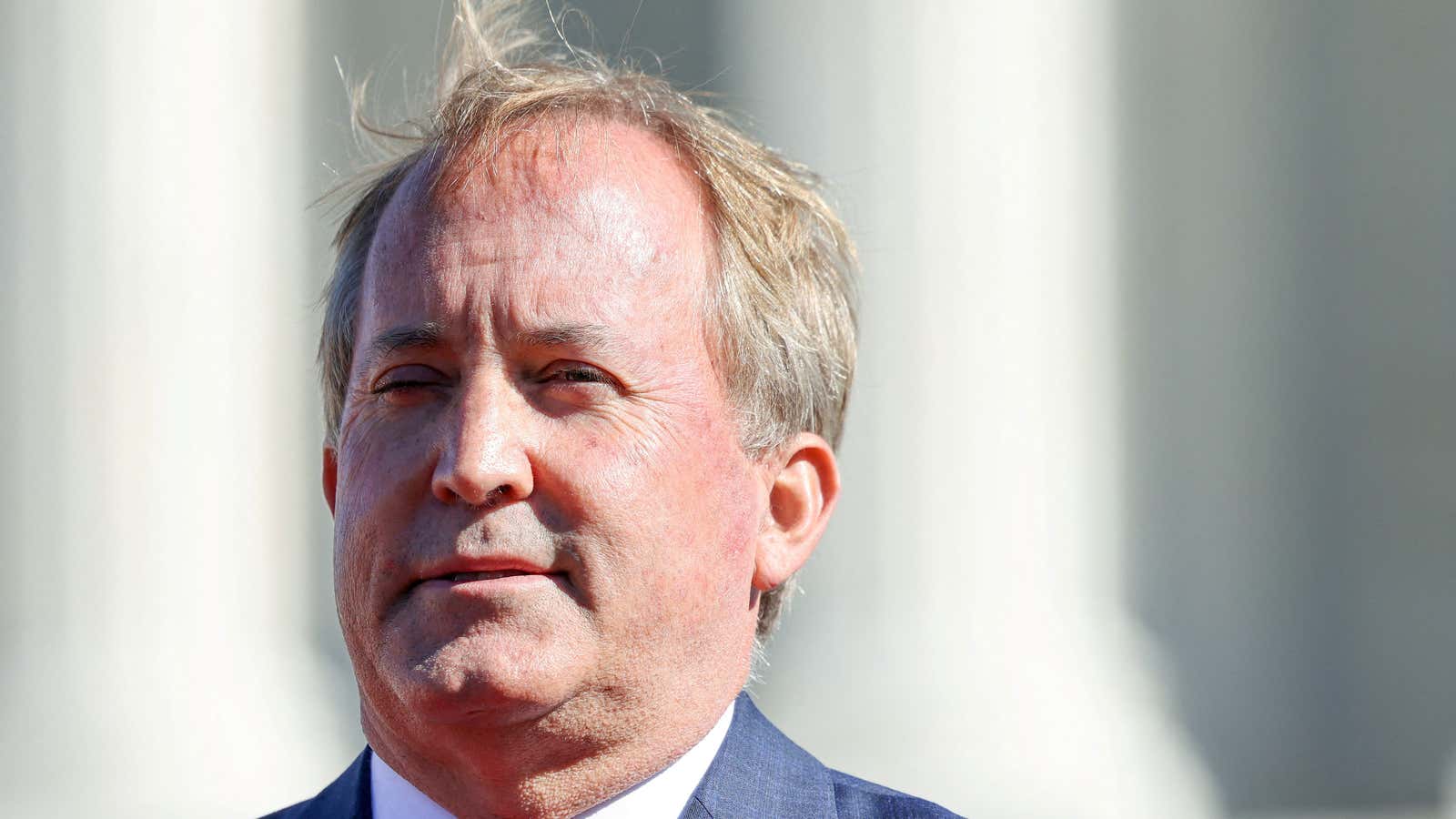The state of Texas wants to tell social media companies what user-generated content they can keep on their websites. In September 2021, Texas passed a law that prohibits the largest social media companies, such as Facebook and Twitter, from removing users or their posts based on political expressions or “viewpoints” (pdf). It also lets Texans sue social media companies with more than 50 million users under the law for any perceived violations.
Critics have blasted the law as unconstitutional for violating the First Amendment rights of private entities like Twitter to exercise control over speech on their platforms. Legal analysts also argue the Texas bill violates Section 230 of the Communications Decency Act, a clause shielding internet companies from liability for moderating user-generated content.
In December, a federal district court judge in Texas issued a preliminary injunction (pdf) preventing the law from taking effect. The judge wrote that the law’s “prohibitions on ‘censorship’ and constraints on how social media platforms disseminate content violate the First Amendment.” But on May 11, a three-judge panel on a federal appeals court lifted the injunction letting the law stay on the books while the court considers the Texas government’s appeal.
Scott Wilkens, a senior staff attorney with the Knight First Amendment Institute, said in a statement that the decision will have “terrible consequences” for online speech. “Texas’s law violates the First Amendment because it compels social media companies to publish speech they don’t want to publish,” Wilkens wrote in a statement. “Worse, the theory of the First Amendment that Texas is advancing in this case would give government broad power to censor and distort public discourse.”
What’s next for the Texas social media law?
The US Supreme Court could reimpose the injunction while the appeals court hears the case, but there is no guarantee that will happen. Powerful conservative judges, including some Supreme Court justices, have openly criticized social media companies for perceived liberal bias. Justice Clarence Thomas opined that social media companies have too much power over speech and should be regulated as “common carriers”—a legal distinction most often associated with transportation or phone companies in the US—or “places of public accommodation”—like hotels or restaurants—to prevent them from moderating content.
In the near term, Twitter and other social media companies may decide to cease service to people in Texas as they would immediately be liable to lawsuits under the new law. That would be an unprecedented decision by any social media company.
Twitter and LinkedIn spokespeople declined to comment on the decision and whether the companies will remain operational in Texas while the case is decided. Representatives for Pinterest, Reddit, YouTube, and LinkedIn did not respond to a request for comment.
